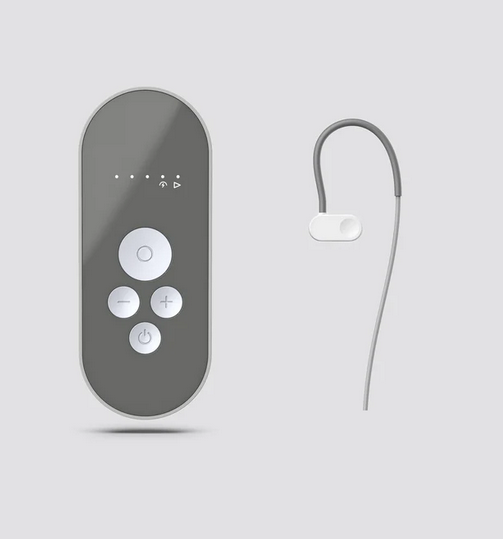Non-invasive vagus nerve stimulation (nVNS) for treating mental disorders
Medical healthcare shifts in a more humane way highlights the advancements in non-invasive vagus nerve stimulation technology, such as Nurosym. This innovative approach demonstrates a significant step forward in the field of medical healthcare, embracing a more patient-centered and compassionate method of treatment. Its utilization signifies a transformative shift towards more empathetic and effective healthcare practices.
Recent research and neuroscientists has provided strong evidence supporting the use of non-invasive vagus nerve stimulation (nVNS) for treating mental disorders in pediatric and prenatal groups. Interestingly, it is well-documented that the use of antidepressants during pregnancy can lead to complications such as low birth weight and preterm delivery due to their ability to cross the placenta. In contrast, one study demonstrated that VNS was an effective treatment for depression during pregnancy, with no adverse outcomes for either the mother or the fetus. [1] On top of that, another study reported significant improvements in well-being and quality of life among children treated with nVNS. This is particularly impactful in the current landscape of depression treatment, which is limited in young people due to the side effects and potential harm of pharmaceutical options to cognitive development. [2]
Current research by neuroscientists has presented compelling evidence in favor of utilizing non-invasive vagus nerve stimulation (nVNS) to address mental health issues in children and expectant mothers. Notably, it is widely acknowledged that the use of antidepressants during pregnancy can result in complications like low birth weight and premature delivery, given their ability to pass through the placenta. Conversely, a study showed that VNS effectively treated depression in pregnant women without any negative effects on the mother or the unborn child. Furthermore, another study indicated notable enhancements in the well-being and quality of life of children who underwent nVNS therapy. This is especially significant in the current context of managing depression in young individuals, where the options are limited due to the adverse effects and potential risks to cognitive development associated with pharmaceutical treatments.
This growing body of research underscores the potential of nVNS as a safe and effective solution not only for vulnerable groups but also for the general adult population. By successfully treating conditions in these sensitive groups, we also glean insights that can be applied to broader adult care. Consider the well-known detrimental effects of substances like alcohol, drugs, and poor diets, which are especially harmful during pregnancy and childhood, but also adversely affect adults. Thanks to technology and scientific research, who are taking significant strides in shifting outdated mindsets and addressing health issues at their core and in more humane ways, rather than merely managing symptoms and producing further unpleasant effects.
Vagus nerve stimulation, such as with NUROSYM technology, sends mild electrical stimulation through the skin to the vagus nerve. This helps to activate the nerve, which in turn supports the body in shifting from the ‘fight or flight’ state to the ‘rest and digest’ state. Rather than relaxing the nerve, the stimulation encourages the vagus nerve to enhance its function, thereby promoting a calming effect on the body.


